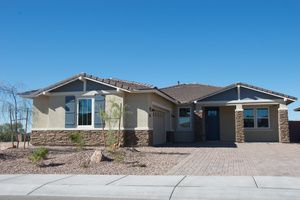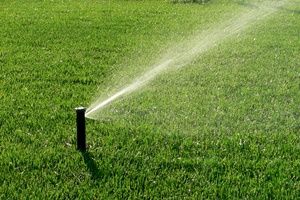You may take the dirt beneath your home for granted, but it is surprisingly powerful. In fact, fill dirt is one of the most important structural components of a home and is one of the top causes of structural failures. Overlooking its importance can be a costly mistake, with experts saying that it costs an average of $50,000 or more to investigate and correct house foundation issues that are caused by fill dirt, with costs sometimes running into six figures.
Why Fill Dirt Mistakes Can Lead to Foundation Problems
Your home’s foundation is built upon several layers of soil, and much of that soil will come into contact with the foundation walls. If the soil in the area is too wet or dry, it can lead to a range of issues that cause problems, such as settling, shifting, cracks, leakage and bowing.
Here is a look at four fill dirt mistakes that can compromise your home’s foundation.
Using Expansive Soil

When a home is built on expansive soil, it has a much higher risk of experiencing foundation failure. Fill dirts that have the ability to retain a significant amount of water, such as soils with a high clay content, expand and contract dramatically in the presence or absence of water and are known as expansive soils.
Clay often acts like a sponge, and when the ground expands, it exerts upper pressure on the foundation; when it contracts, there is not enough support. Over time, this heaving and shrinking can cause the foundation to break.
Other types of expansive soil experience similar problems, exerting considerable pressure on perimeter foundation walls and exposing a foundation to significant moisture for a long period of time. This can cause cracks that allow moisture to get through, which can eventually cause efflorescence and lead to major foundation problems.
Insufficiently Compacted Soil
Geotechnical engineers warn that homes should only be built on undisturbed natural soil or engineered fill. Because most natural soils have been in place for thousands of years, they have had a lot of time to densify properly. However, fill depends on mechanical compaction processes to reach high density. When this compaction is not carried out correctly, the weight of the home will compact it, and the results can be unpredictable.
A structural failure that stems from improperly compacted soil has the potential to be very severe. After all, fill is usually placed beneath the entire foundation, which means every area of the home could be affected. Settlement can lead to bending and tilting, which can distort the entire home.
For this reason, the International Residential Code specifies that fill soils used beneath foundations are “designed, installed, and tested in accordance with accepted engineering practice.”
When fill is engineered, a professional geotechnical engineer determines specifications for its quality, thickness, uniformity, moisture content, density and subgrade preparation according to the conditions of the site. The engineer must also ensure that the natural soil that exists beneath the fill will be able to bear the weight of the fill and the home together. In addition, the engineer will observe the placement of the fill and test to confirm it complies with the specifications.
Using Fill Dirt With Poor Drainage Characteristics

When water collects or pools near your home and you’ve used fill dirt that does not have good drainage, the soil will absorb the water and swell. This can cause bowing in the walls and cracks in the foundation. Using the right fill dirt can help avoid this problem, and it is also important to ensure the gutters and downspouts are directing water far away from the home and foundation. Be sure to verify that the ground around the home is sloping away from the foundation rather than toward it.
Leveling Low Areas Without Compacting
In some cases, a property may have been prepared with the proper soil, but a builder may bring in loose soil from another part of the yard as part of the leveling process to fill in hollow or depressed areas. This soil may be looser than the hard-packed, dense soil existing at the site, and if it is not compacted properly, it can start to compress due to the weight of the home, which can lead to settlement.
Tips For Preventing Foundation Damage
Homes should ideally be built on high-quality, well-compacted soil, but this can be difficult to control when purchasing an existing home. Here are some tips for preventing foundation damage in homes that have already been constructed.
Have the Home Inspected
When purchasing a home, be sure to have it inspected. The inspector will be able to identify the condition of the foundation and any potential problems it could face in the future.
Check the Grading
For water to properly drain away from the home when it rains, it should have a slope that grades away from the foundation by around six inches for the first 10 feet.
Maintain the Soil

If you live in an area that is prone to droughts, consider spraying your soil from time to time with water or plant shrubs around the base of the home to help the soil retain moisture. However, be careful not to oversaturate it, which could have the opposite effect.
If you live in an area with a significant amount of moisture, you will need to ensure the soil around the home drains water away from the foundation.
Keep the Gutters Clean
A clogged gutter could cause water to overflow and oversaturate the soil surrounding the foundation, so be sure to clean your gutters out regularly or install gutter guards to help prevent clogging.
Maintain Your Trees
Ensure the roots of the trees near your home do not spread too close to the foundation, and relocate those that are putting the foundation in danger.
Contact the Northern Virginia Fill Dirt Professionals
Not all fill dirt is created equally. At Dirt Connections, our team can advise you on the right type of soil for your project. Contact us to learn more about our dirt delivery, compacting, and grading services for residential and commercial sites throughout the Northern Virginia area.
Summary

Dirt Connections was started with one goal in mind: providing quality residential and commercial construction services to clients on time and on budget. Reach out for more information on how we can support your next project.
For your convenience our estimates are free and by appointment. Call 703-940-9949 for a free estimate today!









































